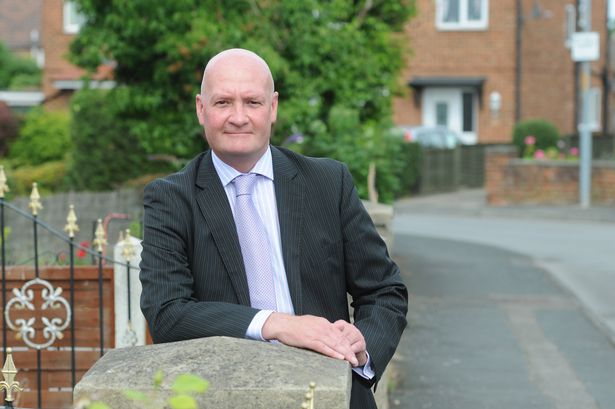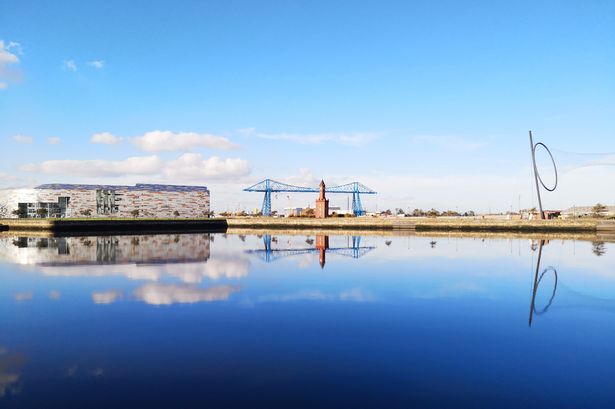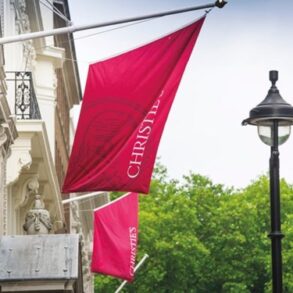Middlesbrough Council has insisted the sale of its artworks would risk legal challenge and is not a fundraising option.
Calls were made last year for the local authority to consider selling off artefacts from its £32.5m collection as the council battled to plug a funding blackhole and avoid a section 114 notice. Some councillors had argued the sale of some art pieces, particularly those in storage, could raise much-needed capital receipts, rather than selling off buildings as a short-term measure.
The local authority subsequently carried out research and concluded it was not an option. The director of regeneration, Richard Horniman, said such a move would leave the council open to legal challenge and could affect future grant funding for the town.
The collection includes over 1,000 fine art pieces, 250 ceramics and a natural science collection of approximately 250,000 specimens.. Other assets include the Bottle of Notes, the Brian Clough statue, a William Kelly book collection and various medals and memorabilia at the Captain Cook Birthplace Museum.
In an email to councillors this week, the director of regeneration, Mr Horniman said: “Following some joint work between ourselves and Mima it is clear that the ownership of the artworks is legally open to interpretation and therefore challenge. For example, the LS Lowry painting was donated by the artist to the council for the people of Middlesbrough.
“The council technically own it, but wouldn’t be able to try and sell it without the threat of significant legal challenge. Recent examples have shown it is very easy to prevent such sales, and cause huge reputational damage in the process.
He also said the implications of selling artwork “go well beyond” the initial legal issues. “Any sale would go against the national code for galleries and museums and would likely be opposed by arts and cultural funding bodies, and potentially by other national organisations campaigning against such sales,” he said.
“Mima would also not be able to support such an action, as it would go directly against their own policies. Any attempt to sell artworks held specifically for the people of Middlesbrough would also negatively affect the prospect of future grant funding for Middlesbrough.
“The implications for Mima and the rest of the cultural sector in Middlesbrough would therefore be significant – even if the sales were unsuccessful. The sale of artwork is therefore not a strategy that can be relied upon to generate capital receipts, and has the potential to cause significant negative financial implications and reputational damage, regardless of the outcome.”
The suggestion to sell artwork came amid the council’s proposal to dispose of buildings and assets including TeesAMP business park, the Viewley Centre in Hemlington, Middlesbrough House and Middlesbrough Municipal Golf Centre to raise £33m. The local authority also went on to successfully apply for £13.4m in Exceptional Financial Support from the Government, which must be repaid with interest.

(Image: Evening Gazette)
Park End and Beckfield councillor and member of the Middlesbrough Independent Councillors Association (MICA) Brian Hubbard said he did not expect the council to sell the Lowry painting or anything bequeathed to the people of Middlesbrough, such as the Brian Clough statue. Pieces purchased by the council using taxpayers’ money should however be considered, he said.
“We think – MICA – we have available artwork that can be sold and should be sold,” he said. The council had considered “possible reactions” and potential cuts to funding, he said, adding: “This isn’t a certainty, and therefore there is a possibility for items to be sold.
“I am amazed how the council can sell buildings paid by the taxpayers of this town for a pittance, and were quite happy to sell the TAD Centre at a knock-down value, which was supplemented through EU funding. I can’t remember at the time the cry of what would the EU think, and the possible consequences of such a giveaway sale.
“This council seems to pay more attention to mima and the code of galleries and museums, than listening to the residents of Middlesbrough, who were against the bulldozing of the much loved Southlands Centre for house building at Marton Avenue, or implementing a cycle lane on Linthorpe Road, at the detriment to businesses in the area. We shouldn’t have to go cap in hand to the Government for a loan which is costing us a fortune in interest when we have artwork which is stored away that no-one can see and is costing the council to insure and store away.”
A spokeswoman for the Arts Council said they understood the financial difficulties faced by local authorities but selling off arts should not be used to cover short-term gaps in funding. Such a move would “erode the long-held and hard-won trust that the public have in museums and will cause irreversible damage to the UK’s cultural inheritance”, she said.
“Museum collections are founded on civic conviction, public investment and the goodwill and support of donors and they represent an extraordinary act of generosity from one generation to another,” she said. “Even when legally owned by museum governing bodies, they are primarily held in trust as cultural, not financial, assets and those responsible for them have a responsibility to protect and use them for the benefit of the public.
“Although collections may be high value and there are ways that they can be sold, there is guidance about how it should be done and it should never be done to cover a short-term gap in funding. Ensuring local investment in culture is vital, as we know it changes people’s lives for the better.”
Museum governing bodies voluntarily commit to abide by the Museums Association Code of Ethics and the Accreditation Standard in managing and caring for public collections. In 2015, a group of funding, membership and development bodies for UK museums, including the Arts Council, released a joint statement which said organisations that choose to act outside of those standards would suffer a direct impact on relationships with development bodies and the ability to access support.
In an article in Public Finance magazine in December, the chief executive of the Arts Council, Darren Henley, stressed the importance of investing in arts and culture, despite the squeeze on local authority budgets. “It is harder to take the long-term view, but it is vital we do, because our creative and cultural spaces can be a catalyst for economic regeneration, drive footfall on our high streets, help build skills, improve wellbeing and instil civic pride,” he said.
“When the challenges we currently face are forgotten our communities will be better places to live, work and visit if their creative and culture assets are protected and championed now.”
Join Teesside Live’s WhatsApp community for top stories and breaking news sent directly to your phone

Teesside Live is now on WhatsApp and we want you to join our community.
Through the app, we’ll send you the latest breaking news, top stories, exclusives and much more straight to your phone.
To join our community group, you need to already have WhatsApp. All you need to do is click this link and select ‘Join Community‘.
No one will be able to see who is signed up and no one can send messages except the Teesside Live team.
We also treat our community members to special offers, promotions, and adverts from us and our partners. If you don’t like our community, you can check out any time you like.
To leave our community click on the name at the top of your screen and choose ‘Exit group’.
If you’re curious, you can read our Privacy Notice.
For a North East politics and regional affairs digest direct to your inbox, go here to sign up to the free Northern Agenda newsletter
This post was originally published on this site be sure to check out more of their content





